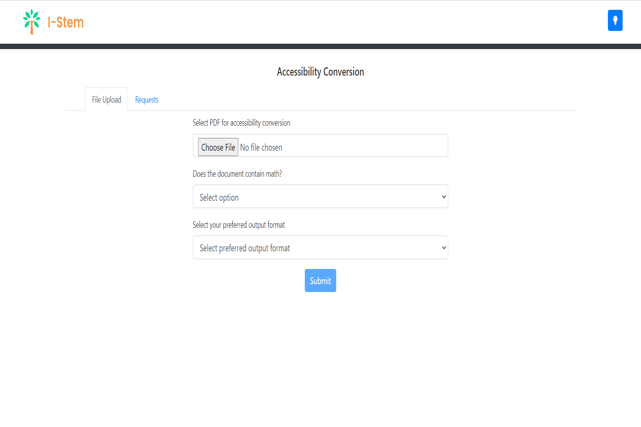
Overview
While there has been growing legal mandate in countries for Inclusive Education and employment through various legislations, access to equal and quality education and employment remains a challenge for people with disabilities. For instance, the law mandates a 5% reservation for the disabled in India, but educational institutions are often at a loss in delivering inclusive education services to students enrolled, forcing students to often drop out even if they make it to schools and universities. While technology can help people with disabilities access content and services independently, it requires the content to be accessible and compatible with their assistive technologies. Unfortunately, over 96% of the online content today is inaccessible according to a web accessibility consultancy company WebAim, forcing people with disabilities to rely on a system that is not designed to meet their needs. Covid-19 has further exacerbated this challenge with an increase in online services leading to a proliferation in the creation and sharing of inaccessible digital content, particularly negatively impacting the most marginalized in the community including people from lower socioeconomic backgrounds etc. who do not have resources and the money to overcome these barriers.
I-Stem solution
Founded by people with disabilities, I-Stem provides AI-powered services that allow people with disabilities to convert inaccessible content into accessible and usable formats that they can independently access using their assistive technology. For instance, a student who is blind or has dyslexia can convert a textbook available on the internet which is otherwise incompatible with their screen reader into a format that can be read out to them, thereby eliminating the dependence on others. Unlike other traditional optical character recognition (OCR) services, we also effectively process complex layouts and structures including STEM content, multi-column layouts, complex tables etc.
Current progress
Over 1M pages have been converted into accessible formats. Thanks to our supporters and funders, we have also converted Indian high school content and several other textbooks for upskilling and uploaded on Sugamya Pustakalaya, India’s largest library for accessible content.
Content accessibility and school education
After converting hundreds of thousands of pages and having worked with thousands of students, teachers and school officials, we have realized that accessible content by itself may not lead to the learning outcomes we hope to see. At the same time, several non-profit partners work with school students on the ground, supporting both the students and the schools. However, they struggle to get accessible content, and often resort to recording of textbooks or manual conversion.
To ensure effective utilization of the accessible content, we partner with non-profits that work with schools and school students and provide them accessible textbooks in a wide variety of formats. This is combined with pedagogical interventions that these nonprofits deliver to support these students and other stakeholders.
Content accessibility and university education
I-Stem was a founding member of the Inclusive University Alliance, a group of universities committed to inclusion on their campuses. Since then, several other universities have established disability offices or dedicated processes to support students with disabilities. We work directly with these offices to help them convert inaccessible content for their students with disabilities. We also work with students directly if their universities do not have a disability office or are not registered with us on a case-by-case basis. In this case, our goal is to create accessible content that can be utilized by a large student body, and so copyright permitting, we share it with the broad print disabled community through platforms such as Sugamya Pustakalaya.
Content accessibility for professional use
I-Stem collaborates with several corporates that leverage our services as accommodation for their employees with disabilities. Similar to universities, we also work with individuals whose companies are not I-Stem partners or those that haven’t signed up for I-Stem services. However, given increased disposable income, we charge a nominal amount for our services.
Content accessibility services for General use
Our preference is working with organizations and content creators to make their content accessible. However, with majority of the content inaccessible, we realize that this is still a challenge within our community. To this end, we provide direct access to our services through our NClude service. This access is limited to people with disabilities and is only meant for personal use. Reach us at info@inclusivestem.org to enroll, verify your eligibility, and access the service.
